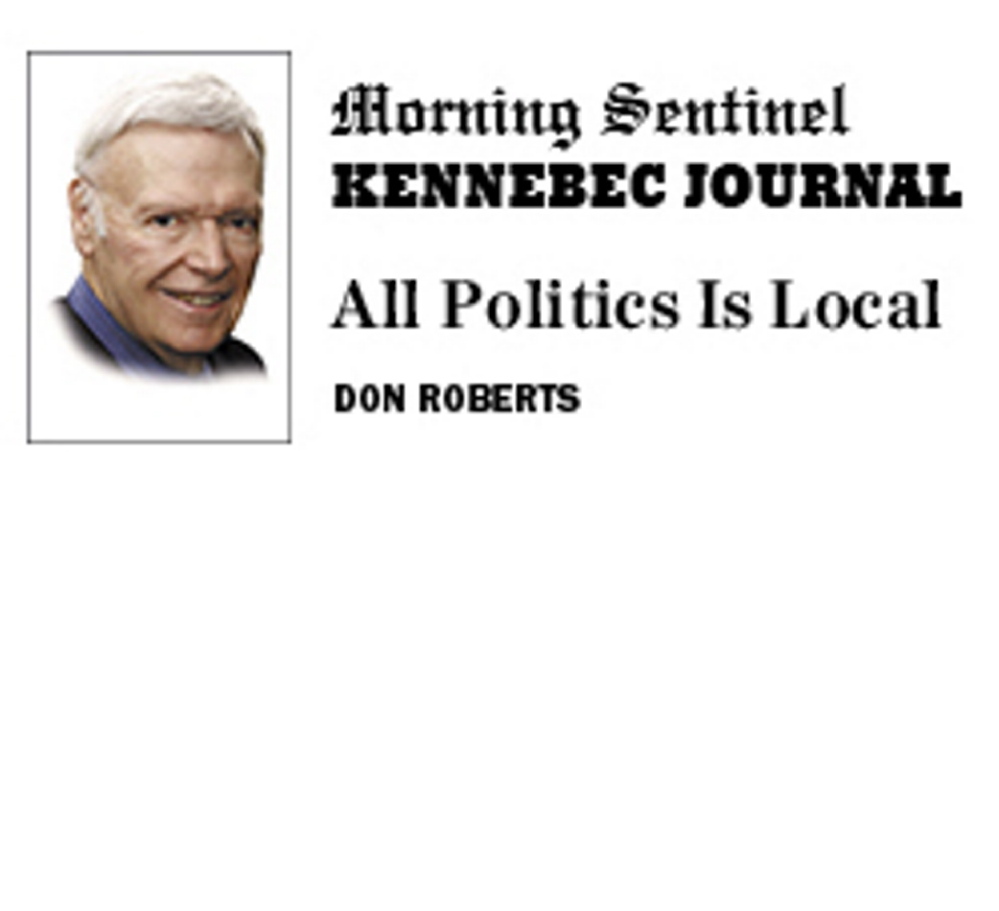Our political system isn’t working well because we are being unreasonable. Facts and reality often get in our way.
Example: We would all like to see taxes eliminated or reduced.
Fact: Taxes cannot be eliminated unless we are willing to accept a quality of life far inferior to what we currently enjoy. We are unable to agree upon what services provided by the government we are willing to do without, so even tax reductions are hard to come by.
Maine’s governor wants to eliminate the state’s income tax, but many of his fellow Republicans in the Legislature find that goal unrealistic. Unlike Texas, Florida and a few other states where business booms and revenues increase, Maine is a poor state and recently scored 47th in economic progress. Our tax revenues to support essential programs are small in comparison to other states.
In Maine and elsewhere, the road map to a better economy is education leading to a better trained and qualified workforce. Yet, our state has never come close to the 55 percent state funding level promised for education. Where would the money come from for education without taxes? Eventual elimination of the state income tax while simultaneously ceasing all state revenue sharing for municipalities would send local property taxes through the roof. Yet that is what the governor proposed. You can’t have it both ways.
Tax reform should be fairly simple for a reasonable people.
After deciding on our basic needs, we should support those programs necessary for a quality of life acceptable to us and each of us should pay our fair share in taxation to meet those goals.
Our three forms of taxation — income, sales and property taxes — need to be adjusted to a more level playing field, with each ideally representing the revenues needed for a decent and just society.
And let’s examine a few inconvenient facts about the ever-present Democratic populist cry: “Soak the rich.”
According to the summary of the latest federal income tax data, released on Dec. 22, the hated, successful top 1 percent make the investments, create the jobs and pay 38 percent of the more than $1 trillion in income taxes in America. They also pay the highest effective tax rate of 23 percent. The bottom 50 percent of taxpayers pay 2.8 percent of all income taxes and have an effective tax rate of 3.3 percent. The top 1 percent pay more taxes than 90 percent of all tax filers combined.
And, according to a report by CNN Money, 43 percent of Americans pay no federal income tax. So the next time you are tempted to join the tax-the-rich movement, ask yourself where the country would be without them?
The facts are that the top 1 percent more than pay their fair share of taxes.
I know that all this is politically incorrect and not embraced by politicians who cowardly yield to popular notions rather than having the courage to educate and to legislate.
I have felt for some time that unequal taxation and income inequality are false arguments.
Some quotes from a column by independent, conservative writer F.J. Rocca, in January 2014 serve to support my beliefs.
He said, “Many believe in attacking one group of people better off economically than another by demanding that the difference in those levels must be remedied by redistribution of income and wealth.”
Rocca points out that this argument disregards certain facts: “Wealth is not static, it is fluid. Wealth is created by individuals working, thinking and inventing. Efforts fulfill potential. There is always more wealth to be attained, because people create for themselves, by working at jobs, opening businesses, inventing something. There always is success to be had for anyone who has vision, and willingness to work hard.”
I would add that we just need to look at all the independent small businesses that make up the core of our capitalistic system.
I believe that the income redistribution argument fails because we are all individuals. Not just part of a mass. We can’t fully control how successful each of us can become. Each of us is different, so there will always be some level of income disparity. If free enterprise is killed or stifled, as Rocca pointed out in his column, “inequality is created under the guise of wealth being equalized.”
As I write this column, I can hear Hillary Clinton on TV intoning the familiar politics of division and envy. She is pounding the popular political theme of inequality, as she pits haves against have-nots, and one gender against the other. Our banks, investment firms, business leaders and capitalistic system is the problem according to this lifelong professional politician. Clinton would bring us a progressive, liberal, Europeanized country based on the failed theory of “collectivism.”
Her class and gender warfare campaign for president is dangerously wrong for America.
Don Roberts, a former city councilor and former vice chairman of the Charter Commission in Augusta, is a trustee of the Greater Augusta Utility District.
Copy the Story LinkSend questions/comments to the editors.



Success. Please wait for the page to reload. If the page does not reload within 5 seconds, please refresh the page.
Enter your email and password to access comments.
Hi, to comment on stories you must . This profile is in addition to your subscription and website login.
Already have a commenting profile? .
Invalid username/password.
Please check your email to confirm and complete your registration.
Only subscribers are eligible to post comments. Please subscribe or login first for digital access. Here’s why.
Use the form below to reset your password. When you've submitted your account email, we will send an email with a reset code.